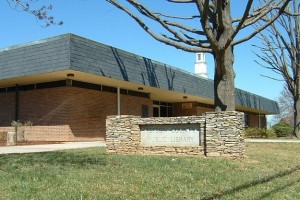Planning for the Library’s Future

As a child, I loved going to my local public library. My Montessori class would visit the library every few weeks to return borrowed books and find new ones to escape into. I even still have my first library card with my six-year-old signature on the back and was really sad to replace it after returning home from college. Although I frequented Kershaw County Library for story times and summer reading books, I never thought of it as an entity of my local government (this makes complete sense considering I didn’t really understand the vastness of local government until becoming an MPA student). To me, books were just as fascinating as any of the latest toys or gadgets and I reveled in competing with my classmates to see who would leave the library with the tallest stack of books. Before my immersion into the world of public administration, I viewed libraries as apart from the seriousness of bureaucracy, which is why I was interested to attend a meeting with the Strategic Steering Committee for Person County Public Library.
Yesterday, I was able to get a closer look at the government side of libraries at the final meeting in a nearly year-long strategic planning process for the library. The Hyconeechee Regional Library System dissolved last year, leaving its member libraries in Orange, Caswell, and Person counties to plan for independent futures. The Person County Library Director, Christy Bondy led the committee’s efforts to come up with a three-year strategic plan that is framed by the Person County Futures Project and a needs assessment process. In the MPA program, we often discuss how common it is for a strategic plan to be created, only to be put on a shelf and never used, or to be so vague that it is impossible to measure its success. However, I was impressed that the library’s plan is clear and has specific, measurable goals to meet the needs of Person County citizens through books, digital information, and some programming. The committee members seemed dedicated to creating a plan that fits the community. They also stressed the importance of accountability by integrating parts of the plan into the individual work plans of library employees.
While the library’s strategic plan captures the important services that are provided for Person County residents, it made me think about the future for libraries in general. Over the last few years, computers and access to digital information has been a major driver in maintaining library patronage. As more people gain access to computers and the internet, what will happen to libraries? I should probably defer this topic to my friends in the School of Information and Library Science, but it seems that the big challenge for public libraries in the coming years will be to carve a more innovative path. Maybe they will have coffee shops and big cushy chairs or be completely technology-based with e-readers instead of books. In any event, they will most likely be much different places than I remember from my childhood, but like any organization, libraries will have to change or cease to exist. I sincerely hope that the latter does not happen and that libraries have a place in the future.
Come back next Friday for the latest adventures in Person County!



3 Responses to “Planning for the Library’s Future”
Lori
I’m sitting in on some similar types of meetings with the library system in Wake County, and what’s interesting is that Wake is doing REALLY well in service numbers (circulation count, door count, program attendance, etc.) while sticking to a very conservative strategy – they haven’t invested heavily in ebooks (and in fact they’re seeing a plateau in ebook use), after one failed attempt at a coffee shop they’ve given that up, and some seem to think that they’ve over-invested in public computers. There are several theories out there as to why the library system is performing so well, but one of these might just be that the library has just stuck to its mission: getting people to read. Most of the time, that still means books. Food for thought!
Christy Bondy
I enjoyed reading your blog about attending our meeting last Thursday. Current library trends are a moving target. We contine to try and maintain traditional services but are working to provide additional services. This can prove challenging with less funding then a few years ago. The flip side of the coin, is when we invest in what was hot yesteraday, often interest has waned. This keeps me job both interesting and challenging when considering allocating funding. I think libraries try their very best to provide the best resources and services to their citizens on tight budgets.
As I read the comment above, we are expeiencing some of the same things as Wake County. E-books were in large demand several years ago and now interest is leveling off. Public computer use is down but our door count remains high. We thought about the logistics of having a Barnes & Noble atmosphere with a coffee shop but are finding it a bit unfeasable. Many ideas came out of the strategic planning process and it was interesting to hear from our users and committee. In the end, I think we came up with a solid plan that is feasible to execute with the funding and staff we have. Our final product will most certainly be a living document that will be adding to and implemented throughout its three year cycle.
Pirlanta Sarrafi
Most of the time, that still means books. Food for thought!Great posting! This is extremely insightful and a lesson that many people struggle to learn throughout their professional life.